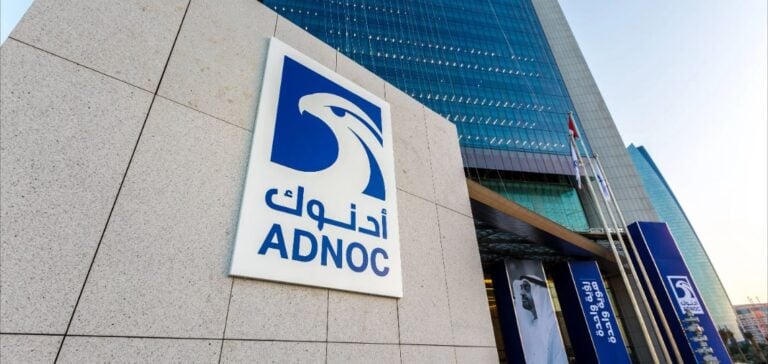The Emirati oil and gas group Adnoc has announced the signing of a liquefied natural gas (LNG) supply contract with the German company Securing Energy for Europe GmbH (SEFE). This 15-year contract provides for an annual delivery of one million tons of LNG starting in 2028. The agreement was signed with the SEFE Marketing and Trading Singapore subsidiary, marking a significant step in securing Germany’s energy needs.
Germany, increasingly dependent on LNG for its energy needs, views this partnership as a major step towards diversifying its supply sources. Indeed, LNG represents more than a quarter of Germany’s energy supply, underscoring the importance of this new agreement for the country. According to Fatema Al Nuaimi, one of Adnoc’s executives, “natural gas is a pillar of Germany’s energy security, and this agreement reflects our commitment to supporting this security in a sustainable way.”
A low-carbon intensity project
The gas supplied under this agreement will come from the developing site in Ruwais, located 250 kilometers west of Abu Dhabi. This LNG project is presented as one of the most environmentally friendly, with a low carbon intensity compared to other production sites. This feature gives Adnoc an advantage in a market where the energy transition is becoming increasingly crucial.
Once fully operational, the Ruwais plant is expected to produce around 9.6 million tons of LNG per year. To date, more than 7 million tons of this production have already been secured through long-term sales contracts, reinforcing Adnoc’s position as a major LNG supplier for various international markets, including Europe.
SEFE: a pillar of German energy security
Securing Energy for Europe GmbH (SEFE) originates from the former German subsidiary of the Russian gas giant Gazprom. Nationalized in November 2022 following the invasion of Ukraine and the cessation of Russian gas deliveries, SEFE has established itself as an essential player in Germany’s energy security. The company, rescued from bankruptcy by the German government, is tasked with ensuring a stable gas supply for the country and Europe.
SEFE’s CEO, Egbert Laege, highlighted the importance of this partnership with Adnoc, stating that this collaboration “supports efforts to diversify Germany’s energy sources responsibly and to strengthen energy security for all of Europe.” This project thus represents a crucial strategic diversification for SEFE and the German government, which are seeking reliable suppliers beyond Russian borders.
A strategic partnership for Europe
The agreement between Adnoc and SEFE comes in a context of energy tensions in Europe, exacerbated by geopolitical crises. With this agreement, Germany and, by extension, Europe, solidify their energy ties with the United Arab Emirates. The signing of this contract also reflects a willingness for a long-term partnership between Europe and the Middle East to address the challenges of energy transition and supply security.
By expanding its energy cooperation with a major player like Adnoc, Germany hopes to build greater resilience against potential market disruptions. This partnership could also pave the way for similar agreements across Europe, as the continent seeks to stabilize its supplies of energy resources.





















